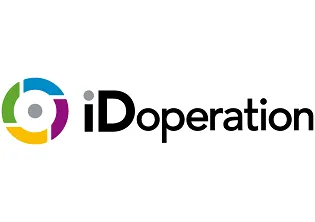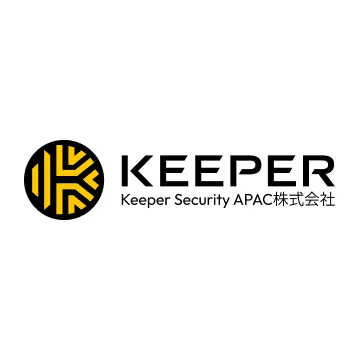少し直感的ではありませんが、非常にうまく機能します。
どのようなビジネス課題を解決できましたか?あるいは、どのようなメリットが得られましたか?
解決される主な問題は、パスワード管理/特権ユーザーアクセスです。ローカルサーバーアカウントとドメイン特権アカウントは、アカウントがどこで使用されるか誰も知らなかったため、ローテーションされることはめったにありませんでした。 PMPはこれらのリンクを自動的に検出し、それらすべてを処理します。また、このツールを使用して、他の管理者が他の承認されていない方法でパスワードを保存することを強制的に拒否しました。 PMPはパスワードを非常に頻繁にローテーションするため、場合によっては毎日、他の承認されていない方法はすぐに古くなり、管理者はPMPを使用して最新のパスワードを取得する必要があります。
改善してほしいポイントは何でしょうか?
非常に直感的であることがわかったSecretServerから来ることに偏っていたかもしれませんが、この製品は用語といくつかの手順を使用しており、直感的でわかりにくいと感じています。彼らの所有者/共有/許可戦略には欠陥があり、構成が非常に面倒になっていると思います。リソースには所有者が必要です(これは欠陥だと思います)が、そのリソースが他の誰かが所有するグループの一部である場合、パスワードのリセットなどが不安定になり、おそらく失敗します。問題を解決するために、すべてのリソースを同じアカウントで「所有」しました。ただし、他の管理者がリソースの追加を開始すると、すぐに面倒になるという点で、役割ベースのアクセス制御が壊れているように感じます。幸い、私にはその問題はありませんが、それが起こっているのを見ることができます。この「所有者」の概念も悪い考えです。所有者が会社を辞めた場合、誰かがPMPに入り、その人が所有するすべてのリソースを見つけて、再割り当てする必要があるからです。これは苦痛であり、所有者の概念がなくても、リソースへのアクセスを制御するためにアクセス許可/RBACを使用するだけでよいでしょう。
この製品・サービスの良いポイントは何でしょうか?
価格の割には、この商品に勝るものはありません。すべてではないにしても、ほとんどの場合、より洗練された(そしてはるかに高価な)競合他社と同じことを行います。 ADコンピューターとユーザーを検出するように構成しました。この検出中に、ローカルかドメインかに関係なく、サービスアカウント特権で実行されているすべてのサーバーでローカルサービスとスケジュールされたタスクを検出します。一部のADユーザーアカウント(サービスアカウント)では、さまざまなスケジュールでローテーションしています。すべてのドメインコンピューターについて、ローカルアカウントをさまざまなスケジュールでローテーションしています。 ThycoticSecretServerが1/4のコストで実行していたすべてのことを実行しています。彼らのサポートは、開発者が本当に雑草に飛び込むことを含めて、問題をウォークスルーして解決するためにかなり迅速にwebexに乗り込むことをいとわない。これまでのところ、修正/パッチはすぐにリリースされています。また、サーバーにRDPを実行したいユーザーにPMPを介して強制的に実行できるジャンプボックスにできることも気に入っています。彼らはPMPを使用し、問題のサーバーを参照する必要があります。そうすれば、PMPは彼らのためにRDPセッションを開始します。さらに、それは彼らのセッションを記録します。素晴らしい!
検討者にお薦めするポイントがあれば記入ください
オフショアサポートに汗を流さないでください、それらの人は良いです。とにかくインドの会社だと思うので、技術的には会社のある場所からオフショアではありません。 APIについて話すことはできませんが、直感的ではありませんが、SecretServerが行うすべてのことと一致すると思います。
続きを開く
A bit non-intuitive, but works very well.
What problems is the product solving and how is that benefiting you?
The main problem solved is password managed / privileged user access. Local server accounts and domain privileged accounts were rarely, if ever, rotated as no one knew where the accounts might be used. PMP automatically discovers those links and handles them all. I've also used this tool to forcibly negate other admins from storing passwords in other, non-approved methods. Since PMP rotates passwords very frequently, in some cases daily, the other non-approved methods are quickly out of date and admins are forced to use PMP to get the latest password.
What do you dislike?
I might have been biased coming from Secret Server, which I found very intuitive, but this product uses terminology and some steps I just find not intuitive and confusing. I think their owner/sharing/permissions strategy is flawed, which makes the configuration overly cumbersome. Resources must have owners (which I think is a flaw), but if that Resource is part of a group owned by someone else, things like password reset get wonky and probably fail. I've just made every resource "owned" by the same account to solve the problem. However, I feel like my role based access control is now broken in that if other admins were to start adding Resources, it would quickly get messy. Luckily I don't have that problem but I can see it happening. This "owner" concept also is a bad idea because what if an owner leaves the company, now someone has to go into PMP, find all Resources owned by that guy, and re-assign. It's a pain and would just be better without the concept of an owner, but merely using permissions/RBAC to control access to Resources.
What do you like best?
For the price, this product cannot be beat. It does most, if not all, the same things as the fancier (and much pricier) competitors. I configured it to discover AD computers and users. During this discovery, it finds local services and scheduled tasks on every server, running under service account privileges, whether local or domain. For some AD user accounts (service accounts) it is rotating them on my various schedules. For all domain computers, it is rotating their local accounts on different schedules. It is doing everything I had Thycotic Secret Server doing at 1/4th the cost.
Their support is willing to get on webex's fairly quickly to walk through and resolve issues, even including developers to really dive into the weeds. Fixes/patches have been quick to be released on issues thus far.
I also love that it can be a jump box where I can force users who want to RDP to a server, to do so thru PMP. They must use PMP, browse to the server in question, and PMP will launch an RDP session for them. Plus, it records their session. Excellent!
Recommendations to others considering the product:
Don't sweat the off shore support, those guys are good. I think it's an Indian company anyway so technically they are not off-shore from where the company is.
Can't speak for the API stuff, but I would say it matches everything Secret Server does, albeit in a less intuitive manner.
続きを開く







